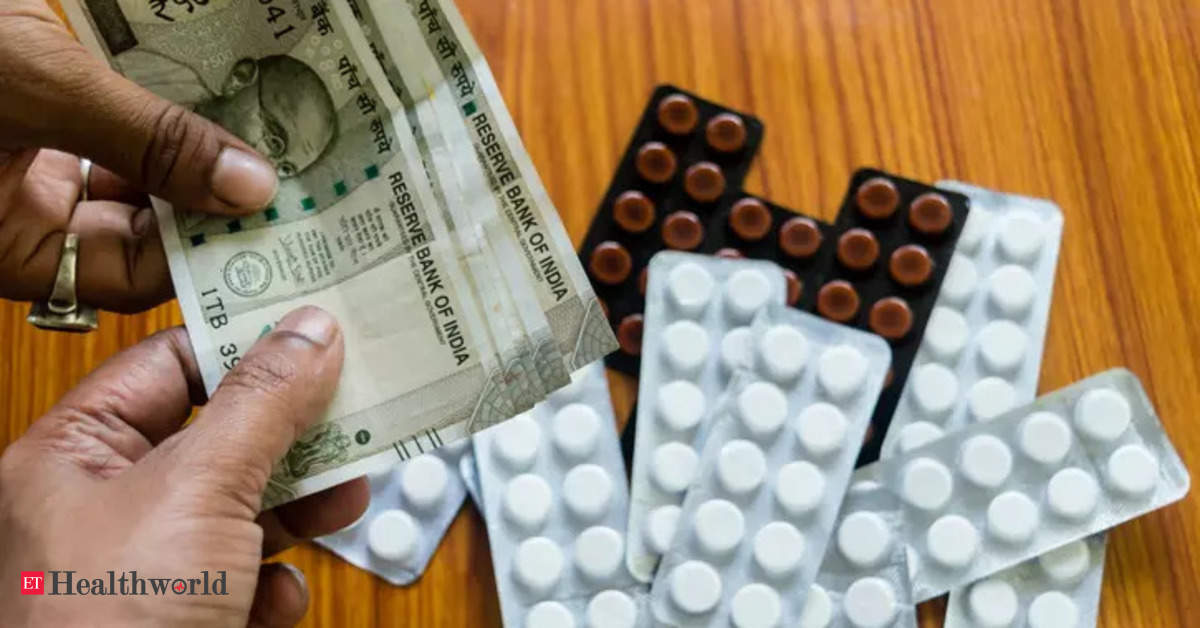384 essential medications to be dearer by 12 per cent, Health News, ET HealthWorld

Continue with Facebook
Continue With Email ID
By continuing, you agree to the Terms & Conditions and acknowledge our Privacy Policy. This same account can be used across all Economic Times B2B portals.
By Ritika Sakhuja and Prathiba Raju
New Delhi: Citing a 10.7 per cent change in the wholesale price index (WPI), Indias drug pricing authority National Pharmaceutical Pricing Authority (NPPA) has allowed a price hike of 12 per cent from April 1, 2023, for scheduled drugs that are under price control. This is the highest annual increase on record and will affect the prices of 384 essential medications, that are a part of the National List of Essential Medicines (NLEM) prepared by the Ministry of Health, including paracetamol, ibuprofen, cetirizine, amoxicillin, and azithromycin.
This latest regulation issued by NPPA, Department of Pharmaceuticals, Ministry of Chemicals and Fertilisers on March 27, 2023, was met with considerable backlash as experts are concerned that this goes against the Drug Price Control Order (DPCO) of 2013, which was established to ensure that essential medicines are affordable and accessible to the general population.
The current 12 per cent hike is the highest since the DPCO 2013 came into force, and this is the second year in a row that the WPI is higher than the annual permitted price hike for non-scheduled formulations (ten per cent). Concerned stakeholders warn that such high back-to-back price increases are undermining the purpose of price fixation for essential medicines.
Amid concerns that the latest massive hike will distort price controls, with experts requesting further government intervention, Dr Sharad Kumar Agarwal, National President, Indian Medical Association, urged, The first reaction will always be negative if there is any price hike, but in hindsight, if there is an increase in the prices of raw material and there is an organic increase in prices everywhere, then it becomes essential to consider the government bodys logic behind the increase in the prices of the medicines.
This rings true as the pharmaceutical industry of India has been demanding a substantial increase in drug prices to make up for the rising input costs due to the pandemic. According to industry experts, over the last two years, the cost of freight, plastic and packaging materials, as well as the prices of active pharmaceutical ingredients (APIs) has increased significantly, leading to surmounting manufacturing costs.
Government will have to raise the prices as per the WPI, otherwise the industry will not be able to survive. API cost has increased by more than 20-30 per cent in the last two-three years. All the other expenses such as infrastructure or marketing expenses are also increasing day by day. Getting a price markup of 10-12 per cent can help manufacturers compensate for some of the losses. If the price of the medicine is not increased, the manufacturers will have to reduce their manufacturing capacity leading to low quality or shortage of medicine for the consumers, said Rajiv Singhal, Secretary, All India Organisation of Chemists and Druggists (AIOCD).
Singhal predicts that the regulated price hike will take a few weeks before it starts affecting consumers. He said, The increased pricing will be reflected for consumers by June, I suppose. There must already be medicines that are in the pipeline currently. Plus most manufacturers have an inventory of up to 60 days at the very least, also the retailers must have an inventory of at least 15-20 days. So these updated pricing regulations will be implemented on medicines that are manufactured from April 1, and should start reflecting during retail by May end or June starting."
Experts suggest that although this price hike has been established to compensate for the increased manufacturing costs and ensure a consistent supply of quality medicines, pharma companies might not indulge in dramatic price hikes to get an edge over their competitors. They were of the opinion that the WPI-linked increase will bring some relief to the industry, but a steep price increase would not be possible considering consumer concerns.
Follow and connect with us on Twitter, Facebook, Linkedin,
Friday, March 31, 2023 at 1:51 pm